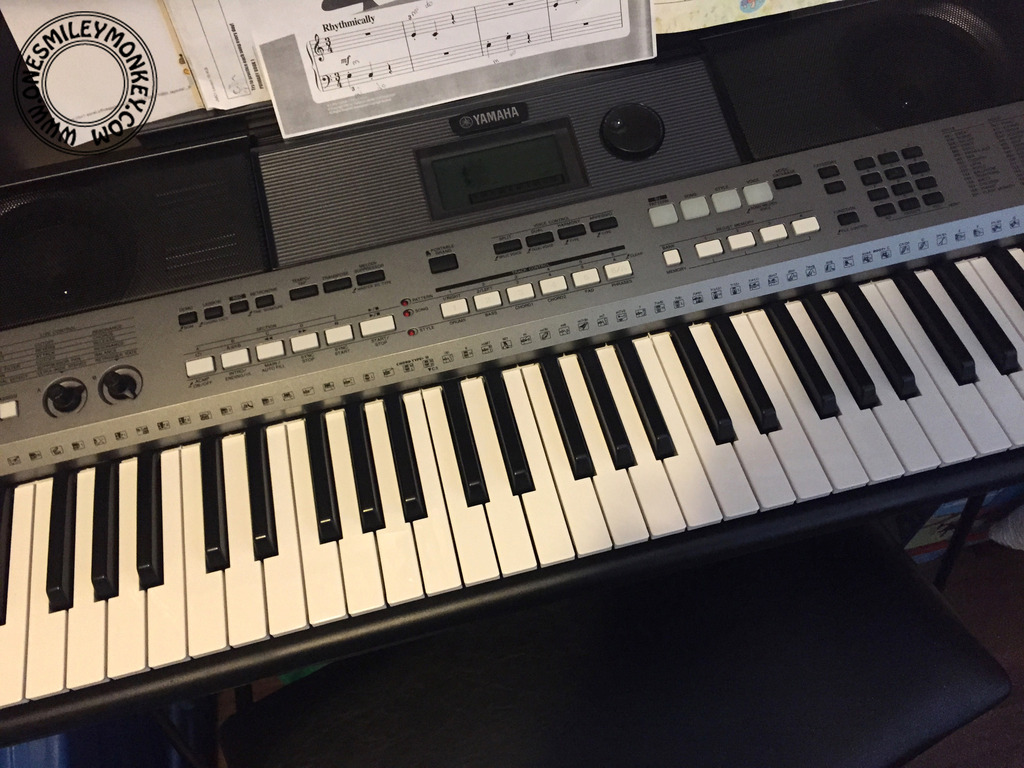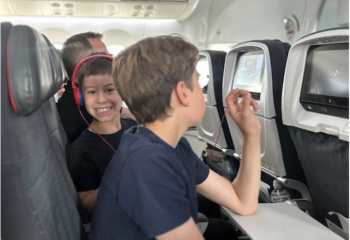
By Pamela Chan, Contributor
I can’t remember when the questioning started but I do know that we were being assessed. When would my children start to learn the piano? Were my twins attending piano classes? How often were they playing the piano? Were they progressing? Did you know X’s child, of the same age, is quite advanced already?
I actually did field these questions. At the same time I could see that their contemporaries were going to piano class.
When my children were 4, I started to see other children their age sitting at the piano playing simple tunes. Now that they are 5 1/2, other children are playing the piano using both hands and reading fairly complex sheet music. I am not referring to any child in particular that we might know. You will see this pattern the world over and I have seen it repeatedly over the decades.
Meanwhile – back at the ranch – my two children didn’t even want to touch the piano.
And let me just stop and note that we happen to have a lovely, apartment sized Baldwin piano at our home. I even ordered special music books from the United Kingdom to help us along. I could see that the music programme was well designed.
There was just one stumbling block and it was a big one. “We don’t want to learn the piano”, both of my children told me. Before he turned 5, my son started to tell me he wanted to learn the violin. I didn’t feel that he was ready. My daughter wasn’t interested to learn any instrument. How could this be? Doesn’t every child want to get their hands on a piano?
Since I started to have those thoughts, I have heard stories about children who aren’t interested in the piano at all. But isn’t the piano the perfect starter instrument before pursuing other instruments? Apparently not all children, at least, think so.
My children have attended a group music lesson since they were newly minted 4 year olds. Their teacher uses Kodaly music instruction methods to teach a group of 10 children, along with a healthy dose of exposure to world music. Now that my children are well into their second year, they’re learning about writing music and enjoy playing wooden xylophones as a group. In the next level up the children learn to play the recorder.
Since we have attended these classes for 1 1/2 years, shouldn’t my children be inspired to learn the piano? While observing the class, I picked up a book that their teacher had left on the side board. It included notes about every instrument a child might want to play. I found content about the best age to start each instrument. I was surprised to note that most of the instruments do not have a young age attached. The average starting age appeared to be 6 – 8 or even older. The author suggested the age of 8 for starting the piano and also mentioned that children who started earlier were probably being pushed by a parent and helped along until the child learns to be motivated and like the piano. “Pushed”? Yikes. The author explained that as younger children start school, they are emotionally and intellectually focussed on the challenges that school presents. The suggestion is that they aren’t ready to start the piano until they are a little older.
You can imagine that many, many parents will contest that statement vigorously. Of course many children start the piano before they are 8. (For the record I was 10. But then again the opportunity didn’t present itself before then.)
This suggestion about when to introduce children to an instrument did get me thinking. We know that there are children who are actively campaigning to learn an instrument and will stick with it once they start. But what about everyone else? If we didn’t sign our children up for musical instrument classes, would they ask to start? How can we introduce children to music lessons in such as way that they will develop a life long love for playing that instrument? We all know people – and maybe you and I are some of them – who worked their way through the Royal Conservatory music lessons, competitions and performances, but barely touch their instrument of choice in their adult years.
Have you heard parents muse about all the arts classes their child took years before. “Look at them now. They don’t even like the arts. What was the point?” I was left speechless during one of these conversations. What could I say in response?
We never hear those stories, but they’re out there. I have seen how someone can be gifted, when it comes to playing an instrument, but will say later on that he/she felt pushed to perform and never liked the experience.
I had to accept defeat and I even said as much to my children’s group music teacher. “They don’t want to learn the piano. I guess I’ll wait and see…”
See Part Two coming up for more discussion about waiting, watching and observing your child’s level of interest in a musical instrument.









13 Comments on “My Children Refused to Learn the Piano”
We always felt learning to play an instrument was important. We didn’t push the piano, but let them choose. It worked for us.
I do believe that if a child isn’t interested you shouldn’t push them, that often leads to opposite effect that you really want to achieve. I learnt to play the recorder whilst at school and hated every minute of it. I have no ear for music at all, can’t sing and never listen to music either. I do however have two cousins (sisters) who both played piano and violin, both taught these and one to this day still plays in an orchestra and she’s over 70 now.
yes i agree , if its something they don’t want to do , don’t push them into it , i’m sure if it interests them they will pursue it and ask to try it !
i wish i knew how to play the piano!
I was pushed into it and hated the piano because of it – I refuse to push mine and won’t unless they show an interest.
M
Music was a bit part of my childhood…..I’d hoped for the same with my kiddos, but so far, no go. My son just had so desire to learn it….as for my girl, time will tell. She’s 3 now and has shown some interest, so I will encourage it and keep my fingers crossed.
It’s just not for everyone I guess.
I think it’s more about what they want. I myself was pushed into playing the piano, while I enjoyed parts of it, I certainly wasn’t a fan of being pushed to play an instrument I had no interest in. But playing the piano has certainly made me appreciate music so much more. Honestly to each their own, and since they are still young, there’s still plenty of time.
I would’ve loved growing up as a piano player. It’s a beautiful instrument. Maybe the interest will slowly present itself as they grow.
i wish I learned how to play the piano!
My husband and I raised 5 children and all of them had to opportunity to play musical instruments. Some stuck to the piano for some years, one completing Grade 8 Royal Conservatory. One chose a flute and one a trumpet for a few years. But as adults none of them have continued. So I only have to hope that the process of learning music was beneficial 🙂
We have to encourage children to be active in areas that have an interest in not things we want them to do
I wish i had learned when i was young
I dont think you should push children to do things we wished we had done when we were young.If a child has a interest in something,encourage and help them do just that.